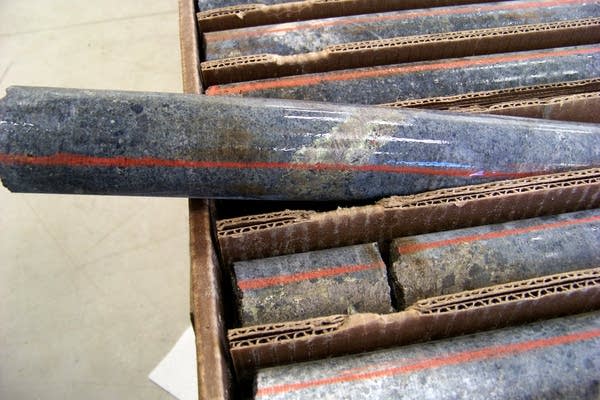McCollum seeks study on Twin Metals' potential to pollute Canada

A core sample drilled from underground rock near Ely, Minn., shows a band of shiny minerals containing copper, nickel and precious metals (center) that stands out against the darker rock. The rock is flecked with minerals bearing copper, nickel and precious metals that Twin Metals Minnesota LLC, hopes to mine.
AP Photo | Steve Karnowski 2011
Go Deeper.
Create an account or log in to save stories.
Like this?
Thanks for liking this story! We have added it to a list of your favorite stories.


